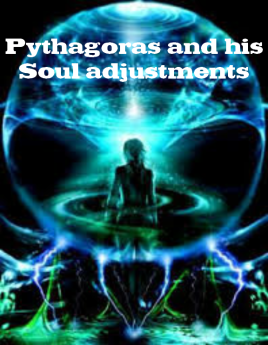The leading book in the field of past life regression has long been Dr. Brian Weiss’ Many Lives, Many Masters. Nine out of ten people who contact me for regression have read it. It stands as most people’s sole reference point. Without it, I don’t know that past life regression would have survived its initial surge in popularity in the 80’s and 90’s. Published in 1988, it remains a compelling tale of therapy and healing over 25 years later. The power of the story displayed the potential of the tool, though it did not tell us what to do with that power.
Over the last few decades, a handful of competent professional manuals, handbooks and journals have been printed, though few have revitalized the thinking that was presented decades ago. Many gifted practitioners have offered their methods in a clinical and procedural manner, replete with structured theories on specific times and places which occur before and after life that are inherently spiritual. The name itself, “Past Life Regression,” suggests a succession of past lifetimes, which can render the interpretation of regression experiences as something other than past lifetimes — or something more — as anathema.
Like meditation, sex and rollercoasters, past life regression is an experience. Having and sharing these experiences is often so intoxicating and evocative, you can easily lose yourself in devotion to it. Talking about these experiences is akin to describing music. You just have to hear it.
Interpreting Spiritual Information
When leading a workshop, I’ll sometimes ask, “Who here considers past life regression spiritual information?” Generally, everyone will raise his or her hand. Then I’ll ask, “What is spiritual information?” To which most people will look around and sit quietly until I admit that I do not know either.
My journey into the interpretation of spiritual information began in Turkey in 2007 when I was told that I would have what I wanted and it would come easily. She was an Istanbul local named Ferme, reading my coffee grinds. Before a reading of coffee grinds, you drink a cup of Turkish coffee which is generally a dark, rich, semi-sweet equivalent to an espresso, and when finished turns the cup over on its saucer, spilling the grinds. Ferme was studying to become a regression therapist under my father, the late Dr. Jeffrey Ryan.
Hypnosis and past life regression are the family business. English was not Ferme’s first language. When she told me “You’ll have what you want and it will come easily,” it was immediately followed by a rush of dopamine to my head confirming the good news. Until some time later when I began to consider its usefulness (and my naiveté), along with all the other information occupying this nebulous area of my understanding. The advice from psychics and intuitives, the passing commentary of therapists and teachers, the interpretations of astrologers and tarot readers, the wisdom of mystics and seers, my father’s words… How do we know what is useful? How do we measure truth without the benefit of mathematics?
I don’t claim to know the answers to these questions. They are philosophical and somewhat rhetorical. As the words are examined, I’m reminded that language is simply a set of symbols or tools. How then do we interpret the symbols? How do we use the tools?
I take no position — professionally or personally — on which of my client’s experiences are real and which are unreal. I do not see it as my job to qualify my clients and student’s experiences for them.
I do help them to interpret the information. I do offer my opinions and guidance where I think it will illuminate. My “belief” in reincarnation is a small observation with large implications. All I see around me are cycles of life beginning, ending and beginning again. Why would we be any different? Perhaps Voltaire said it best centuries ago: “It is not more surprising to be born twice than once; everything in nature is resurrection.” I make no claim to understand how it works, nor do I disqualify anyone else’s beliefs, but it does appear to me this happens.
About Past Life Regression
During a past life regression you are ideally in a deep state of relaxation that is easy, present, open and aware. The guidance you receive during the average regression will be much like a guided meditation, and will usually begin with progressive relaxation or guided imagery. In this state you will be walked through a series of immersive experiences that may or may not be memories of past lifetimes. The “memories” themselves should be produced by your subconscious mind, and appear to you as if they were being revealed (the dodgy nature of memory notwithstanding). Your attention rests with the senses as you explore the scene. Questions are asked and connections are made to and from the past; the origins of a phobia are finally understood, the roots of a difficult relationship are discovered, loved ones who have passed are reconnected with.
Practitioner methods vary widely depending upon where they trained, who with, the purpose of the regression, as well as their personal preferences, among other things. As with meditation, there is no right way or wrong way. Past life regression is a balance between technique and artistry, guiding the experience confidently and remaining open, intuitive and spontaneous. The practitioner provides the context for the experience; the client provides the content of the experience.
Regulation and certification within the field are both commendable and dubious. I know countless inspiring therapists who do this work actively fighting to raise and maintain professional standards. And I know snake oil salesmen who have polluted the field. All forms of professional and spiritual competition are present, to equally dramatic and comedic effect. Even Dr. Weiss’ story in Many Lives, Many Masters mentions his own censure from the American Medical Association when he became vocal about past life regression. While giant strides have been made and many battles won, in my experience misconceptions and fearful thinking still pervade popular beliefs, especially concerning hypnosis.
Past life regression dates back centuries, though it has only been clinically studied for the past four decades, beginning with Ian Stevenson’s 1974 book Twenty Cases Suggestive of Reincarnation, in which he examines the spontaneous recall of previous lives by young children. It is self-evident that this phenomena deserves study and attention, as the insights it offers into the nature of consciousness, and the potential it offers for healing, are both grand and real. It is also clear that these experiences act as metaphors for what we’re experiencing in the present, which in turn points to other possibilities.
Perhaps these experiences connect to the unconscious through metaphor in a manner similar to dreams. Perhaps symbolic reasoning — the uniquely human ability that allows us to use language, exchange money, and comprehend layers of meaning — offers a meta-narrative for the expression of dominant themes in your life at the present moment.
During the past life regression experience, we appear to access a great storytelling machine that pulls out characters, connections and conflicts from an archetypal, Jungian collective unconscious. At the same time, it can be a tremendous creative aid for storytellers. Among my greatest joys have been working dynamically with creative professionals and artists who use past life regression in this fashion.
Moving Past Past Lives
As I see it, in order to advance past life regression the possibility space must be expanded. The groundbreaking discoveries of 40 years ago are reductive today. Regression taps into parts of the brain and the unconscious that we are only beginning to understand. The narratives that arise are immersive, surprising — simultaneously strange and familiar. The act of exploring these states and interpreting them requires great care.
I suggest to my clients and students that they resist the temptation to place their experiences “into a box.” Instead of deciding that what they saw was definitely a past life, or not (or a half-recollection of a book, or a film mixed with a dream…), we should first accept that these stories change as we do. They act as your own personal mythology, and offer new wisdom over time, just like Aesop’s Fables. If we limit our thinking and determine that the experience is definitively this or that, we limit our capacity to learn from it.
As we guess at what occurs after life, I’m often reminded that past life regression is neither a time machine nor a fixed perspective. My sense is that we do not travel into the past or future. But our minds do, all the time. There remains only one time and place where change can happen, and that is in the present. If any one of us somehow managed to possess all the wisdom in the universe, we could still only use it right now.
A teacher once told me that an ocean of knowledge simply cannot fit into the teacup of the mind. In my own practice and in my experiences of past life regression, I’ve come to see the investigation of the afterlife as a rich and seductive area of study, as well as a distraction where the truth can only be guessed.
The imperative, as I see it, is to continue these explorations into our consciousness, our selves. Tools like meditation, hypnotherapy and regression therapy remain mysterious. They are misunderstood largely because we lack a common vocabulary to discuss them and their efficacy. Today, when oceans of knowledge literally do exist on the Internet, available on our phones, studies into projections of the self, non-duality and cycles of life can be undertaken in any living room or on any park bench. We can learn to work with our brains, aligning our habits and diets to optimize relaxed learning states. We can use the past as a school and meditate peacefully in waking daily life, exploring the territory with one shared map.
In the Car, with My Dad
I was a teenager returning home from a past life regression workshop that my father had led. We were driving to Morristown, NJ. It was probably a Sunday. I had been with him all day as he worked with a group of about 20 people, leading them in and out of deep trance states and exploring what may be memories of past lives. I was half assistant/half participant.
After a pause in the conversation he said, “I’m kinda looking forward to dying.” Incredulous, I asked what he meant. He responded “I want to know if there are past lives or not.” My father served for a time as the President of the Association for Past Life Research and Therapies.
It remains thrilling to me, the candid omission of a spiritual teacher, expressing his uncertainty in private conversation with his son. The conversations I have with my clients, students, friends and family feel to me as if I’m still in the car with my dad. There we can comfortably express our doubt and marvel together at the mystery. If past life regression has taught me anything, it’s that we are all in this together.
from: http://realitysandwich.com/318287/advancing-past-life-regression/










 Thursday, September 03, 2015
Thursday, September 03, 2015


 Debra Infante is a practicing Vedic astrologer and teacher. She began her studies of Vedic astrology in 1995, and was certified by The American College of Vedic Astrology as an approved teacher (Level I) in September 1999. She has been teaching Vedic astrology to the students in the yoga teacher trainings at 7 Centers Yoga in Sedona, AZ since 2002. Debra, can be reached at (928) 639-0623 for astrological consultations, by phone or in person.
Debra Infante is a practicing Vedic astrologer and teacher. She began her studies of Vedic astrology in 1995, and was certified by The American College of Vedic Astrology as an approved teacher (Level I) in September 1999. She has been teaching Vedic astrology to the students in the yoga teacher trainings at 7 Centers Yoga in Sedona, AZ since 2002. Debra, can be reached at (928) 639-0623 for astrological consultations, by phone or in person.